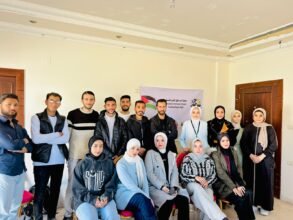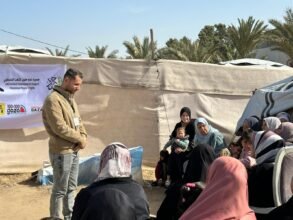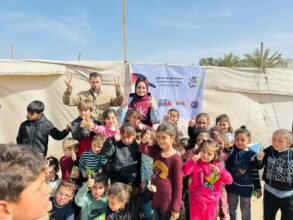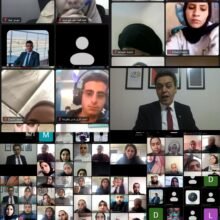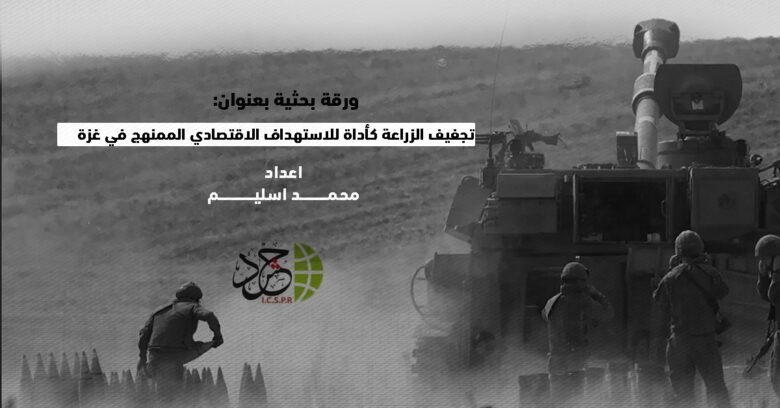
ICSPR issues a research paper titled: “Drying Agriculture as a Tool of Systematic Economic Targeting in Gaza”
Date: August 21, 2025
Press Release
ICSPR issues a research paper titled: “Drying Agriculture as a Tool of Systematic Economic Targeting in Gaza”
Gaza – The International Commission to Support Palestinian Rights (ICSPR) has issued a new research paper entitled: “Drying Agriculture as a Tool of Systematic Economic Targeting in Gaza”, prepared by researcher Mohammed Asleem (2025), as part of its documentation and research efforts aimed at exposing the catastrophic impacts of the ongoing Israeli blockade and aggression against the Gaza Strip.
The paper examines the phenomenon of agricultural drying as a deliberate policy pursued by the Israeli occupation within its broader strategy of economic and social targeting of the Palestinian people, particularly in the Gaza Strip, where agriculture is a fundamental pillar of food security and a vital source of livelihood for thousands of families.
The researcher explained that the paper adopted a descriptive analytical methodology, relying on local and international reports and studies, along with field data and satellite imagery, to highlight the scale of destruction inflicted on the agricultural sector since the beginning of the aggression in October 2023 until August 2025.The paper covered the following key areas:
-
The theoretical and conceptual framework of agricultural drying and its link to systematic economic targeting and economic warfare.
-
Structural background of Gaza’s agricultural sector prior to the blockade and aggressions, where agriculture contributed 11–13% to GDP and provided tens of thousands of jobs.
-
Policies and tools used by the occupation, including direct destruction of farmlands and crops, targeting irrigation networks, wells and nurseries, restrictions on agricultural inputs, expansion of the buffer zone, and control of water resources.
-
Catastrophic economic, social, and environmental impacts, such as an 80% decline in food availability, over 200% increase in agricultural product prices, loss of income for more than 36,000 farmers, unemployment rates exceeding 60%, widespread destruction of land and soil, and near-total collapse of livestock production.
-
Legal and humanitarian dimensions, with the paper concluding that targeting agriculture constitutes a grave violation of international humanitarian law and the International Covenant on Economic, Social and Cultural Rights, as it falls under the internationally prohibited “starvation as a method of warfare.”
-
Proposed solutions and practical recommendations for recovery of the agricultural sector and strengthening farmers’ resilience, including mobilizing international support, launching urgent agricultural recovery programs, and activating accountability mechanisms for Israeli war crimes.
The paper concluded that agricultural drying in Gaza is not a side-effect of military operations, but rather a deliberate and systematic policy aimed at undermining Palestinians’ resilience and forcing the community into full dependency on humanitarian aid. It stressed that destruction levels documented by UN agencies (FAO and UNOSAT), which confirmed that over 86% of agricultural land was damaged by August 2025, are irrefutable evidence of the systematic nature of this targeting.
The paper recommended:
-
Urging the international community to take urgent measures to stop agricultural drying policies.
-
Activating international accountability mechanisms and prosecuting perpetrators of war crimes before the International Criminal Court.
-
Supporting emergency agricultural relief programs for affected farmers.
-
Adopting medium- and long-term agricultural recovery plans that protect natural resources and rebuild agricultural infrastructure.
ICSPR affirmed that publishing this research paper comes within its legal and national responsibility to document Israeli violations and expose their systematic impact on the resilience of the Palestinian people. The Commission stressed that targeting the agricultural sector constitutes a war crime and a crime against humanity, as it deprives civilians of their means of livelihood and food security.
ICSPR called on the international community, the United Nations, and all relevant parties to assume their legal and moral responsibilities toward the Palestinian people by pressing to end Israeli crimes, holding perpetrators accountable, and ensuring urgent and sustainable recovery programs to rebuild the agricultural sector and guarantee Palestinians’ right to food, work, and a dignified life.


